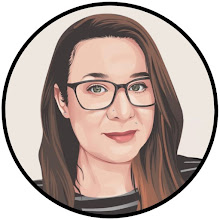Taken in one gulp these writers remind us that being adopted is the singular aspect of their lives out of which everything else flows—just as it is the opposite side of the coin is for first mothers like myself: birthdays, family trees, motherhood, familiar traits, loss. Julie Stromberg writes about how comfortable it is to be with another adoptee because they can talk to each other in ways they cannot to others; Michelle Lahti writes her son’s assignment to do a family tree was more painful for her than him; Elaine Penn remarks on the moment she first heard someone say about her daughter: that’s where her dimple comes from—and referring to Elaine, the baby’s mother; Von tells how she found her love of cooking in both sets of natural families; Nikki Mairs-Cayer Pike talks about the scary, exhilarating moment she got the envelope with the name of her mother; Samantha Franklin sums up the experience of finding her first family: I am whole, no longer cut in half,” and elsewhere: “…We adoptees get mixed messages galore. We are a crisis, unwanted, abandoned orphans. Yet also chosen, special, lucky gifts. Our first mothers are told they are incapable, yet also heroic. Our very identities are “amended” to fulfill a role, and we’re expected to cut ourselves off completely…from the identity, heritage and family in which we were born.”
The book concludes with a longer essay by Amanda H.L. Transue-Woolston, author of the highly regarded and popular The Declassified Adoptee blog, of being overwhelmed in a college course when she was asked to speak critically of her parents: “I did not want to admit that my parents are not perfect when I had already been so busy trying to prove to the world that they are perfect. Reunion, and everything that comes with it, was my choice and not a response to what some people might assume to be parenting failures.”
Brevity demands not including every writer here—though all deserve to be—for their selection in this superb collection covers the gamut of the adoptee experience in all its painful reality. The editors—Amanda Transue-Woolston, Julie Stromberg , Karen Pickell and Jennifer Anastasi –have chosen well.
These are brave, strong essays written from the heart by talented, courageous women who pull no punches. Anyone not already familiar with the inner ramifications of being adopted to the adoptee will be blown away. In a perfect world, I would make every legislator who has not voted for unsealing original birth certificates, every adoption facilitator who makes their living off adoptions, and every adoption attorney, every clergyman or woman who has suggested "adoption" to a desperate pregnant woman, every adoption worker sit down and read the book through in one afternoon. It would change the world.
Lorraine Dusky is the author of the first memoir from a first mother, Birthmark, published in 1979 to great controversy, or some would say, notoriety. A founding member of the board of ALMA, she has been involved in the adoption reform movement since the mid-Seventies.Her articles on adoption have appeared in Newsweek, Town & Country, Parent’s and numerous other publications. She is the founder of [Birth Mother] First Mother Forum, which she writes with Jane Edwards.


